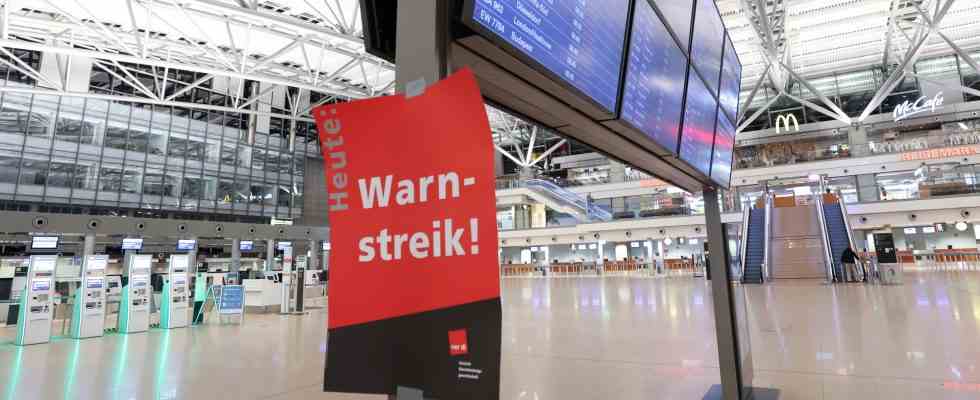Status: 03/27/2023 08:25 a.m
Nationwide, trains and planes are standing still due to warning strikes. The comprehensive walkout in traffic began at midnight and is expected to last 24 hours. Local public transport is also to be on strike in seven federal states.
Trains, buses and planes are standing still all over Germany today. A comprehensive traffic warning strike began at midnight. The strikes are likely to cause extensive disruptions and congestion across the transport sector and are expected to last 24 hours.
“We cannot understand the sharpness of the argument,” Achim Stauss, spokesman for Deutsche Bahn
Morning magazine, March 27, 2023
Long-distance traffic on the railways will be completely discontinued and regional traffic will largely be discontinued. Almost all German airports are on strike, but not Berlin Airport. Waterways and ports as well as the motorway company are also affected.
Local transport on strike in seven federal states
Full streets are also to be expected because local public transport is to be on strike in seven federal states and many people are then likely to switch to cars.
Bernice Tshimanga, SWR, with impressions of the nationwide major strike using the example of Stuttgart
Morning magazine, March 27, 2023
Baden-Württemberg, Hesse, Lower Saxony, North Rhine-Westphalia, Rhineland-Palatinate, Saxony and large parts of Bavaria are affected.
Pressure on current collective bargaining rounds is to be increased
With the warning strikes, the trade union ver.di and the railway and transport union (EVG) want to increase the pressure in their current collective bargaining rounds. Ver.di has called 120,000 employees nationwide to strike, the EVG 230,000 bus and train employees.
Ver.di boss Frank Werneke defended the comprehensive warning strike in the transport sector in Germany at the start of another collective bargaining round for the public sector. “With the strike day in the transport sector, employers should once again be made unmistakably clear that the employees clearly support our demands,” Werneke told the dpa news agency. This applies in particular to the required minimum amount of 500 euros, which employers have so far rejected.
“So far, the federal government and local authorities have categorically rejected a socially balanced collective bargaining agreement,” said Werneke. ver.di cannot accept that. “That’s why we’re doing it now. It’s better to send a strong signal now than weeks of labor disputes with the associated consequences.”
Before the third tariff round
Ver.di and the civil servants’ association dbb are demanding 10.5 percent more income over 12 months, at least 500 euros more, for the 2.5 million employees of the municipalities and the federal government. Employers do not want a minimum amount – and offer 5.0 percent more wages over 27 months.
Under tense circumstances, ver.di and the civil servants’ association dbb meet the local authorities and the federal government again today in Potsdam. This is where the third round of negotiations for 2.5 million workers begins. It is scheduled for three days. Both sides are still far from each other, but an agreement in the days that follow cannot be ruled out.
At the EVG, further negotiations with the various railway companies are pending from the middle of the week. Negotiations with Deutsche Bahn should only continue after Easter.
Strike: Higher costs for all citizens?
Evi Seibert, ARD Berlin, March 27, 2023 7:06 a.m

